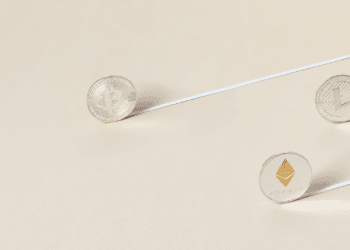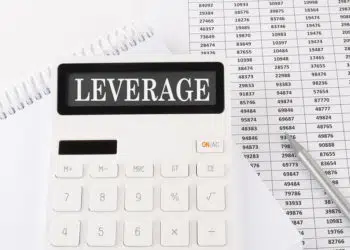An FX forward contract is a foreign exchange arrangement to acquire one currency and sell another at a predetermined forward rate on a date within the next 12 months. These contracts are established between two parties, each of whom commits to buy or sell at a predetermined future period.
To put it another way, the forward rate is the rate at which you agree to transfer your money at a later date. Aside from the spot rate, other factors such as the contract’s validity period and the currencies you’re exchanging influence the determination of the rate. The forward rate stipulated in the contract does not necessarily have to be the same as the current spot rate.
Interest rate differences across currencies are reflected in the forward points. As a result, the forward rate can be calculated by subtracting the spot rate from the forward rate. Foreign currencies with lower or higher interest rates can have an impact on forward points. To put it another way, a currency with a higher current interest rate will be depreciated in the future, and vice versa.
Considering that currency futures are not traded on an exchange, there is no need to make any form of margin deposit to trade them.
Considering that these contracts are private agreements between the parties involved, they can be designed to meet the specific needs of the parties involved in terms of monetary amounts, the agreed-upon exchange rate, and the time period covered by the contract.
Types of FX forwards
- Outright FX forwards
This is the most common form of forwards, where a defined amount is to be exchanged at a predetermined rate on a specific date. The best time to use this is when you are certain of the exact date of your settlement.
- Flexible FX Forwards
This is an agreement to transact a defined amount of currency, to be bought and sold at a predetermined rate. However, it is open ended with regards to the actual date of the settlement. In this case, the forward can also be used several times within the contract validity period before expiry. In the event that you are unsure of the date of your settlement, this gives you some leeway.
When is it advisable to use FX forwards?
Forward contracts are commonly used by market players to guarantee a specified exchange rate at a predetermined date in the future. They are also effective in preventing exchange rates from affecting a business’ importation or exportation of goods due to FX-induced price fluctuations.
If you’re an importer and you’re purchasing items from a foreign exporter, you’ll have to deal with currency exchange rates. They can also be used to pay for maintenance of property purchased in a foreign country or for the purchase of such property by an individual or company.
Additionally, contracts between individuals and a financial institution might be used to support a future trip abroad or to pay for education in a different nation.
The downside of a Forward contract is that it prevents you from taking advantage of any further favorable movements in your currency pair. If you don’t want to miss out on future gains, you can hedge against volatility by using a Forward Contract for a lesser amount of your total payout.
An illustration of how this works
Company X, based in the United States, is interested in importing German vehicles. During a meeting with the supplier, the company promises to pay €1,000,000 in six months.
The current EURUSD exchange rate at the time of the deal is 1.23. As a result, the company estimates that it will pay about $1,230,000 for the vehicles.
First scenario: If Corporation does not use a forward contract
Company X faces a devaluation of EURUSD by 1.25 when it is ready to pay for German vehicles, six months later. There will be a $1,250,000 price tag on the vehicles..
The corporation would be required to pay $20,000 more than it had planned.
Second scenario: Company X opts to use a Forward contract
Company X has decided to purchase the vehicles after six months. However, as the EURUSD= 1.25, Company X has executed a forward contract with a bank to hedge against currency fluctuations. In this case, the contract saves the corporation $20,000 because it thinks ahead and protects itself.
Pros and cons
Pros
- It is an effective way to lock in a potentially favorable exchange rate for a future date by entering into a contract.
- In addition, it provides businesses with the ability to forecast and manage their cash flow without having to worry about FX fluctuation. A business can employ forward exchange contracts as hedging instruments.
Cons
- Risky: An FX forward may lose money if the rate changes in the future. There’s no escaping from it because it is a contractual obligation to be fulfilled.
- An initial deposit is often needed at the start of a deal.
In summary
The most common use of currency forward contracts is to protect against FX rate volatility. Buyers and sellers alike can rest easy knowing that Forex fluctuations will not jeopardize their transactions. Participants in a currency forward contract, on the other hand, forfeit any possible gains from changes in exchange rates that may occur between the time of contracting and the time of transaction closure.







